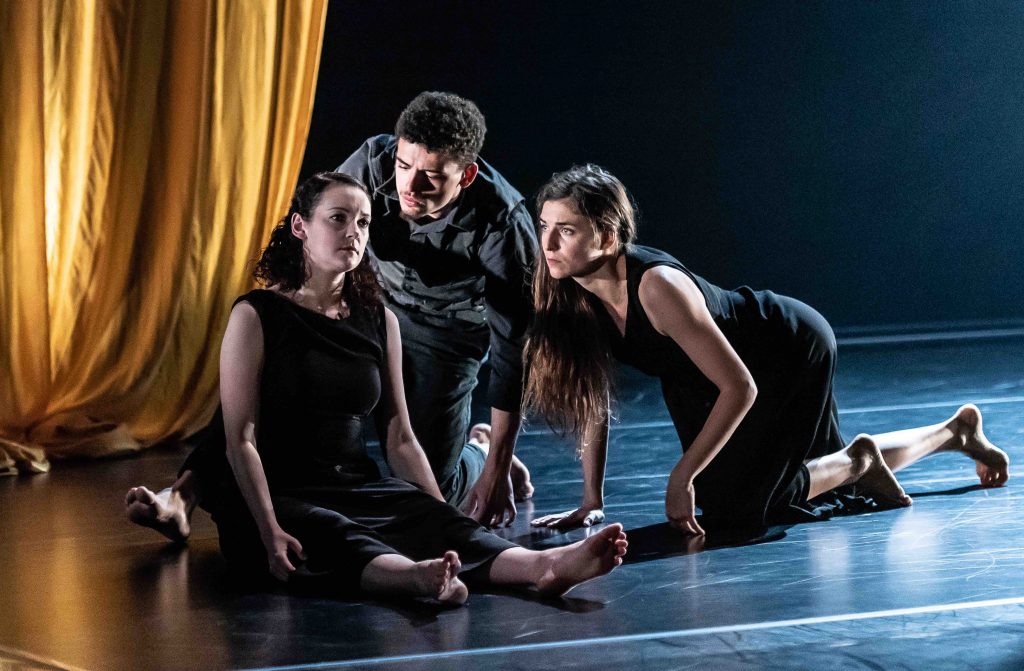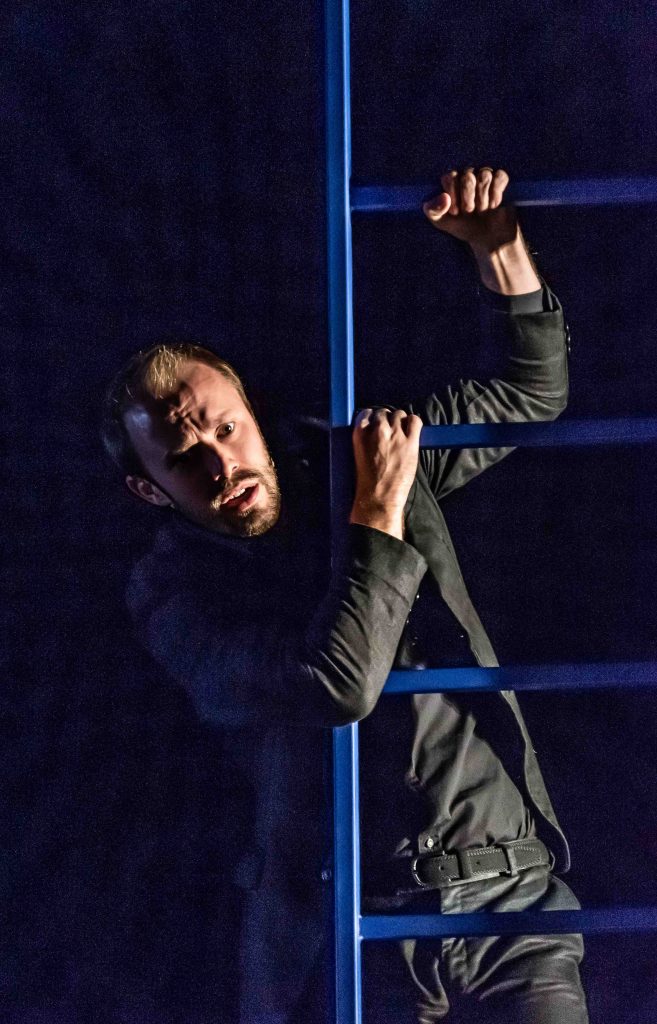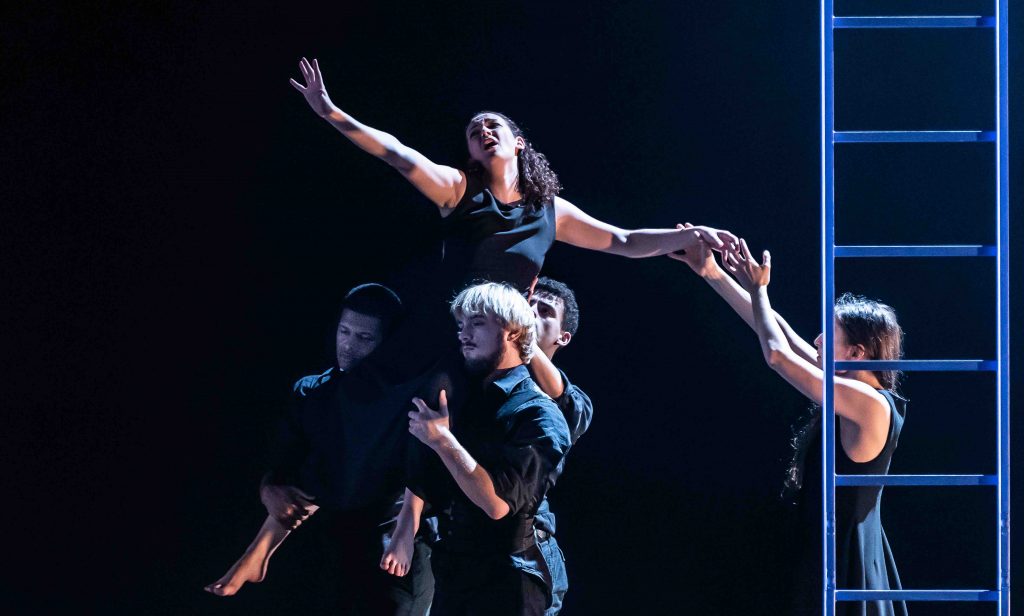Contemporary dance and contemporary music should be a natural fit. Right? Perhaps. But that requires the audience to be comfortable with each art form and then also find something for them in a work that brings them together.
In this respect Passion will delight some, leave others cold, but it succeeds without doubt as a well-crafted fusion of voice, music and movement.
This is a co-production between Music Theatre Wales with its now well-established position as one of the UK’s most ambitious yet accomplished modern opera (for want of a better label) organisations, and National Dance Company Wales with a style that is more difficult to put in a box.
Based on the Orpheus and Eurydice story, that most exquisite and frequently told and retold story of doomed love, frailty, mourning and yearning, Passion was written just a decade ago by French composer Pascal Dusapin. It has its most seemingly apparent contributing manifestation the Monteverdi opera but in striving for a cause this imagining, we are told, had at least in part the desire to give voice to the female of the relationship. How modern. With a commissioned translation from Amanda Holden, Eurydice is able to lament, to voice her experience of loss and, of course, death in this work that simply calls Her, yes, Her and the foolish looker-backer Him. I have to confess that much of the sung word disappeared into pleasant sound rather than distinguishable profound words.

Does such an approach add to our sum of human knowledge? You be the judge. This performance certainly was powerful and emotional and evocative of the forlorn tale with an intrigue contrast of a musical language and use of instruments (including both harpsichord and Oud, for example, creating an intriguing soundscape) and voice, from both our principals and also the Exaudi Vocal Ensemble, taking that most Classical role of the Greek chorus. This was mirrored in the style of Caroline Finn’s choreography with her black dressed dancers (all singers also dressed in black) physically but also metaphorically intertwining with soprano Jennifer France and baritone Johnny Herford, whether ascending/ descending the ladder between worlds and emotional/ biological states; being wrapped in the golden sun curtain or Christ from the Cross-like literally again chorus-like being carried and transported and even perhaps metamorphosed in Michael McCarthy’s staging.
With Simon Banham’s elegant, dare I say restrained classic, designs, we are treated to lighting design from Joe Fletcher that is greatly effective through its comfort with using boldness and subtlety, at once able to use both stark effects and also gentled created mellowness. This is perfectly in keeping with the feel of the entire piece: angst, trauma and obviously passion yet also mesmerising, languid and ethereal in its haunting qualities.
Thus, we had a work and production that musically and in movement both idiosyncratic and iconoclastic. It was both taught and powerful but also maybe a little long and, dare I say, that for a mainstream audience it is unintentionally Elysian in its lack of variety, despite flashes of theatricality, for its 80 plus minute length. Yet there is no question this production’s strength is the seamless weaving of opera and dance.
Its reception from the Wales Millennium Centre audience was quite rightly of equal appreciation of our soloists, the vocal chorus Emma Tring, Rebecca Lea, Lucy Goddard, David de Winter, Greg Skidmore and Jimmy Holiday, the NDCWales dancers Cyril Durand-Gasselin, Nikita Goile, Ed Myhill, Julia Rieder, Malik Williams and Queenie-Maidment-Otlet and the members of the London Sinfonietta.
After the show, however, as we made out way into the child evening air some chatted gleefully about the evening while others who had perhaps not applauded so loudly were metaphorically raising an eyebrow.
Further performance at Theatr Clwyd, Mold on November
Image: Clive Barda
Michael McCarthy talks about Passion:
Michael McCarthy: Working on Passion, a new dance-opera
About Arts Scene in Wales;

